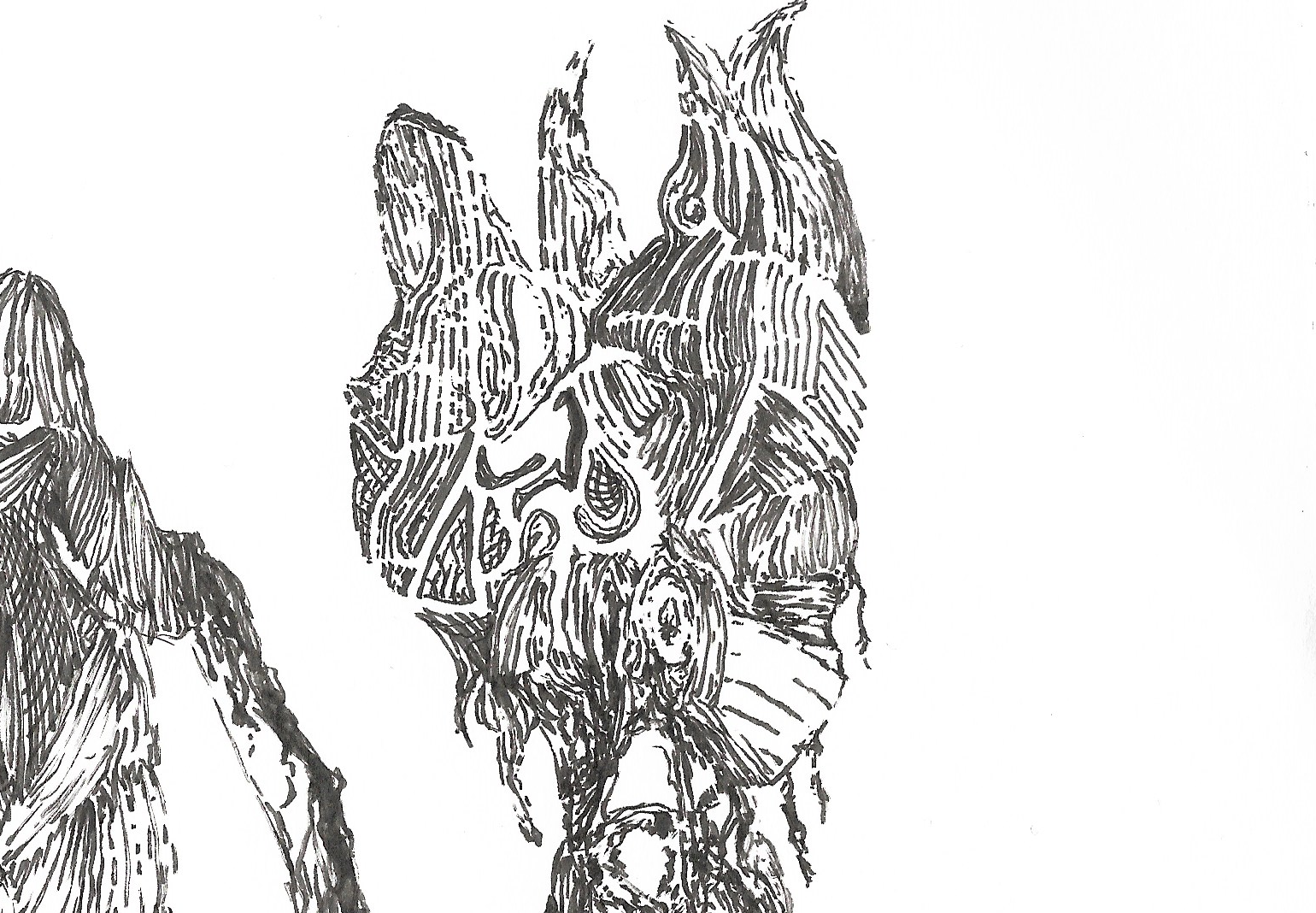I've been practicing daily for a couple of years now.
This year I had a pretty big break-thru in terms of coming up with my own music. A big issue i've had is a distaste for learning other people's music. A good guitar song makes me want to play, but not play the song. It's someone else's song! It's one hell of a mindset, but I only look up published songs when I want to know how they created a specific music phrase, and I generally avoid it. I feel strongly about this for some reason.
But I am kind of stuck. I have some chord progressions I play in, and I have a handful of snippets that I always repeat and lean on to give the stuff i'm playing a loose structure, but turning these progressions and "pieces" of song into a proper song is driving me insane because it's not clicking in my head.
I thought maybe I need to find some folks to play with, and yeah, I do, and I've put out feelers locally for people to play with, especially other trans women, but I've also been searching for advice on songwriting.
What I find really isn't helpful. For one, I am not starting with a melody; a ton of this content assumes you are.
Two, a lot of it just really doesn't discuss the- I guess philosophy and approach? Mechanically i'm already at a point where I can play a song, but I haven't been able to self-discover a process for taking my own material and whipping it into shape, and focusing it up?
I have very little formal music education, i've just been playing every day, pick up a chord or two as I experiment, and stringing together sounds that I like, but I'm really keen to find somebody or someone that can help me develop a more functional creative process, and I'm wondering if this comm might have anybody willing/able to help me work through this stuff?
I would recommend learning the modes as well as how chords are constructed from them! When I say modes, they have names like Lydian, mixolydian, Dorian, etc. they all derive from the standard major and minor scales, but if you start on for example the second note of the minor scale rather than the first, you get an entirely new scale plus new chords and note relationships from them.
The best part is that all modes can be played or based on any note as your root.
IMO it is a very versatile way of both understanding and writing music, and is very light on the “traditional / classical” side of things. It can apply to piano too but it makes way more sense on guitar because all the scales/modes will look the same no matter what key you play them in (unlike piano where you have to take into account sharps and flats)
Without any music theory to fall back on you're really going to set yourself up for some frustration - especially if you aren't willing to study already written music. Ideally you would learn about keys / scales and then recognize them within the music you would like to replicate while learning the piece yourself. I would bet that you're struggling to resolve your own compositions mostly because you haven't studied how whatever style you're trying to replicate solves this eternal problem of writing. It is tough and something that every writer will struggle with.
What I find really isn't helpful. For one, I am not starting with a melody; a ton of this content assumes you are.
Yeah that's because it's a lot easier to do it that way. You can outline an idea, then modify it through modal shifts due to the underlying chords while adding flourishes and whatnot to really fill it out. This isn't possible without at least some basic theory though. Even chord progressions without a lead will often work on the principals of melodic intervals moving within the chords.
Playing with other people is great, but without any music theory it can also be very unproductive. Depends on what style you're going for.
Two, a lot of it just really doesn't discuss the- I guess philosophy and approach? Mechanically i'm already at a point where I can play a song, but I haven't been able to self-discover a process for taking my own material and whipping it into shape, and focusing it up?
For me (and most people I know) the best / only way to do this is by using composition software. Being able to separate your fingers from the idea can really open up your writing in ways you would never reach for while trying to play at the same time. Also really helps to hear it back with the ability to make small changes repeatedly, save different versions for comparison, and even just to shelve an idea for weeks at a time without forgetting it. I've always used guitar pro, but I know there are some free options out there like tux guitar. Personally I'd just pirate guitar pro if you aren't able to justify the cost. It's very good.
I'm not on here too much these days and just got lucky seeing this post, but I'm a former guitar teacher and current full time musician, so happy to help point you in a helpful direction if I can
I have some music theory. I know how to find what key i'm in and stuff - I have some material that's in G#m that I supplemented with a scale in C#m, for example. I can do a basic amount of that kind of manipulation with music theory. When I find new chords I tend to use online tools to reconstruct it to figure out where I'm at, and find likely places to go if i end up developing whatever i'm playing more.
But I'm not gonna pretend I have a lot of depth there - I know enough to fill in a lot of gaps as needed.
What is some composition software you recommend? I have Reaper and Audacity, that I use to record my electric and fiddle with it, but I'm pretty unhappy with Reaper, and Audacity is just too limited in scope obviously
Guitar pro is by far the best. It's the standard for both pros sharing comps with the band as well as pretty much all tabs online (like if download from songsterr or ultimate guitar). A lot of official tab books are just printed out guitar pro lol. If you can't justify the cost I'd just try to pirate it. Tuxguitar is free but a complete mess in comparison.
but I'm pretty unhappy with Reaper
Ah shit, what's wrong? That would also be my rec for home recording. It's definitely a bit more open ended at first but great once you get a work flow settled. Don't have any alternate recs there as it's the only DAW I've ever used in depth.
But I'm not gonna pretend I have a lot of depth there - I know enough to fill in a lot of gaps as needed.
Hey that's fine and a good foundation to build on. Lot of guitar players out there to just refuse to learn even basic theory or practice to a metronome.


